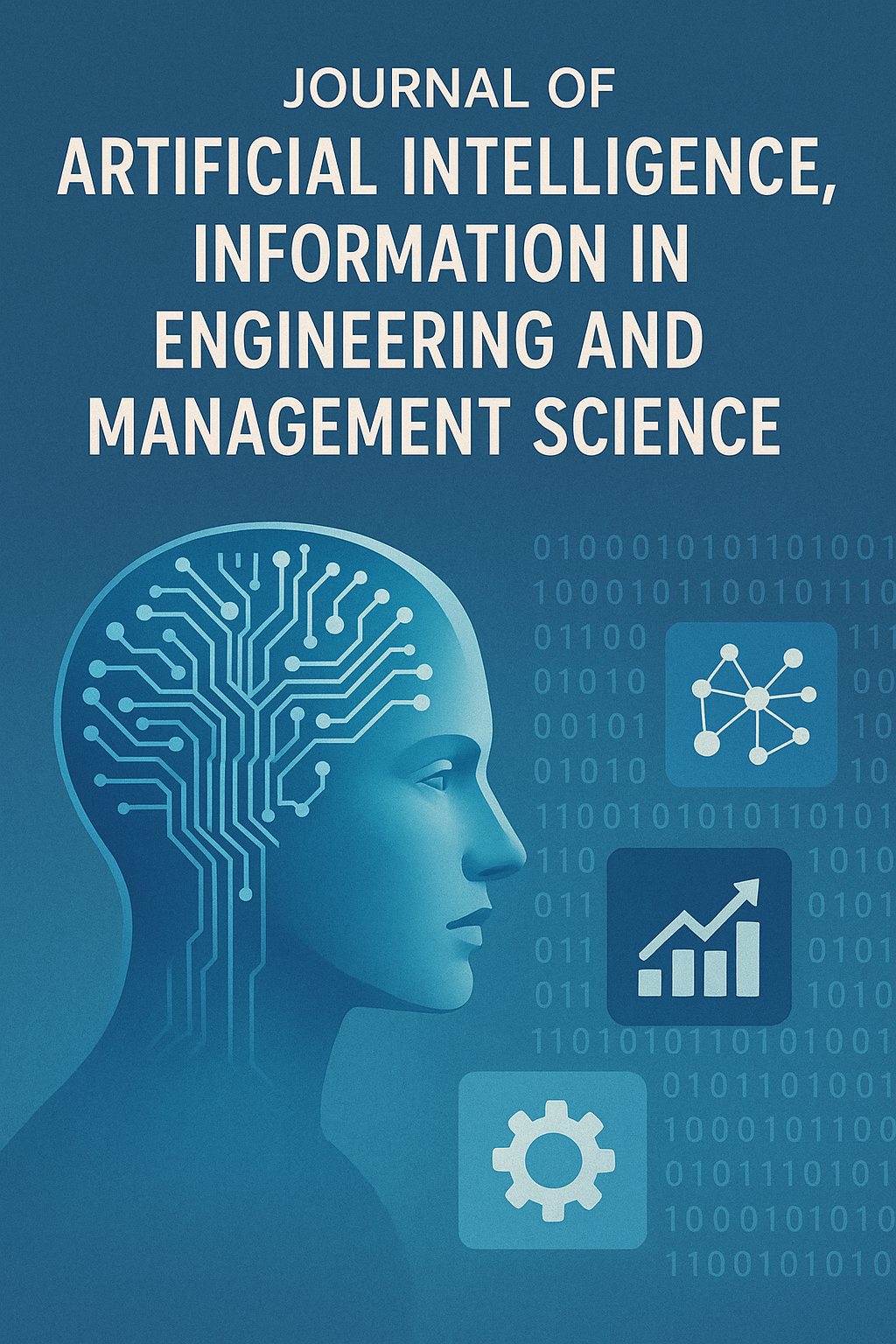About the Journal
Aim
The Journal of Artificial Intelligence, Information in Engineering and Management Science (JAIIEMS) is dedicated to advancing cutting-edge research, innovation, and practical applications at the intersection of artificial intelligence, information sciences, engineering disciplines, and management science.
With AI emerging as a transformative force across all sectors, JAIEMS aims to provide an interdisciplinary platform where scientists, engineers, managers, policymakers, and industry practitioners can share original ideas, theoretical developments, empirical research, and real-world case studies.
The journal’s mission is to bridge the gap between AI technology and its strategic deployment in engineering systems and organizational decision-making, ensuring knowledge dissemination that drives sustainable development, technological competitiveness, and societal benefit.
Scope
JAIEMS invites high-quality, original contributions—including research articles, review papers, technical notes, case studies, conceptual frameworks, and applied research—from a broad spectrum of disciplines. The journal’s coverage includes, but is not limited to, the following areas:
1. Artificial Intelligence Core Technologies
- Machine learning, deep learning, reinforcement learning
- Natural language processing (NLP), text mining, and conversational AI
- Computer vision, pattern recognition, and image/video analytics
- Generative AI, large language models (LLMs), and multimodal AI
- Explainable AI (XAI), interpretable models, and AI ethics
- AI for real-time, edge, and cloud computing environments
2. Information Science and Data Engineering
- Big data analytics, data warehousing, and knowledge discovery
- Data governance, security, and privacy in AI ecosystems
- Information retrieval systems and semantic web technologies
- Ontologies, linked data, and knowledge graphs
- Blockchain for secure data management and transactions
- Human–computer interaction (HCI) and usability engineering
3. AI in Engineering Disciplines
Mechanical & Manufacturing Engineering
- AI in design optimization, product lifecycle management, and predictive maintenance
- Robotics, autonomous systems, and industrial automation
- AI in additive manufacturing and digital twins
Civil & Environmental Engineering
- AI in structural health monitoring and smart infrastructure
- Geospatial analytics, remote sensing, and GIS-based decision-making
- AI in sustainable urban development and disaster resilience
Electrical & Electronics Engineering
- AI in power systems optimization, load forecasting, and smart grids
- AI for IoT-enabled devices, sensor networks, and embedded systems
- AI in control systems, signal processing, and telecommunications
Computer & Software Engineering
- AI-driven software engineering, testing, and quality assurance
- Cybersecurity and intrusion detection systems using AI
- AI in edge computing and distributed architectures
Chemical & Process Engineering
- AI in process control, simulation, and optimization
- Predictive analytics in chemical manufacturing and safety monitoring
Aerospace & Automotive Engineering
- AI in navigation, flight control, and autonomous vehicles
- Intelligent transportation systems and traffic management
4. AI in Management Science and Business Applications
- AI-enabled decision support systems (DSS) and business intelligence
- Supply chain analytics, logistics optimization, and inventory forecasting
- AI in finance, risk assessment, and fraud detection
- HR analytics, talent management, and organizational behavior modeling
- Marketing analytics, customer segmentation, and consumer behavior prediction
- Strategic management with AI-driven insights
5. Sector-Specific and Societal Applications
- AI in healthcare and biomedical engineering
- AI for agriculture, precision farming, and food supply chains
- AI in education, adaptive learning, and knowledge management
- AI for environmental monitoring, energy efficiency, and climate modeling
- AI in public policy, e-governance, and smart city solutions
- Ethics, fairness, and responsible AI adoption across sectors
6. Emerging Trends and Interdisciplinary Studies
- Hybrid human–AI collaboration models
- Socio-economic impact assessments of AI deployment
- AI integration with Industry 4.0 and 5.0 paradigms
- Multidisciplinary AI frameworks combining engineering, management, and social sciences
- Cross-border and cross-sector AI policy framework
- Development of AI standards and best practices for engineering and management applications
- Benchmark datasets, performance metrics, and evaluation methodologies
- International regulations, compliance, and AI governance policies
- Ethical, legal, and societal implications (ELSI) of AI adoption
- Intellectual property rights and AI-generated content management
- Safety certification and validation processes for AI-based systems
7. Standards, Benchmarking, and Regulatory Frameworks
- Development of AI standards and best practices for engineering and management applications
- Benchmark datasets, performance metrics, and evaluation methodologies
- International regulations, compliance, and AI governance policies
- Ethical, legal, and societal implications (ELSI) of AI adoption
- Intellectual property rights and AI-generated content management
- Safety certification and validation processes for AI-based systems
Journal Particulars
- Frequency : 2 issues per year
- Starting year : 2025
- DOI prefix : 10.54646/
- Format : Online
- Language: Online


 | Publication Ethics
| Publication Ethics | Editorial Workflow
| Editorial Workflow | Article Processing Charges
| Article Processing Charges | Allegations of Misconduct
| Allegations of Misconduct | Appeals
| Appeals | Author Guidelines
| Author Guidelines | Editor Guidelines
| Editor Guidelines | Reviewer Guidelines
| Reviewer Guidelines | Peer Review Policy
| Peer Review Policy | Open Access Policy
| Open Access Policy | Plagiarism Policy
| Plagiarism Policy | Copyright
| Copyright | Privacy Policy
| Privacy Policy | Editorial Guidelines
| Editorial Guidelines | Archiving
| Archiving